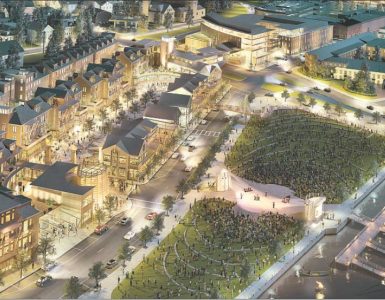Strange days are upon the residents of many a suburban cul-de-sac. Once-tidy yards have become overgrown, as the houses they front have gone vacant. Signs of physical and social disorder are spreading.
At Windy Ridge, a recently built starter-home development seven miles northwest of Charlotte, North Carolina, 81 of the community’s 132 small, vinyl-sided houses were in foreclosure as of late last year. Vandals have kicked in doors and stripped the copper wire from vacant houses; drug users and homeless people have furtively moved in. In December, after a stray bullet blasted through her son’s bedroom and into her own, Laurie Talbot, who’d moved to Windy Ridge from New York in 2005, told The Charlotte Observer, “I thought I’d bought a home in Pleasantville. I never imagined in my wildest dreams that stuff like this would happen.”
The answer to the problem of the American car is not under its hood.
Today’s cars are costly, dangerous, and an ecological nightmare. Transportation generates more than a quarter of U.S. greenhouse gases, according to the Environmental Protection Agency. A portion of that comes from moving freight around but more than 20% is personal transportation. Our vehicle emissions are a major climate change contributor, but what comes out of the tailpipe is only a fraction of the total climate impact of driving a car, and the climate impact is in turn only a part of the environmental and social damage cars cause. Improving mileage will not fix these problems.
The best car-related innovation we have is not to improve the car but to eliminate the need to drive it everywhere we go. In the U.S, we need to stop sprawl and build well-designed compact communities. The land-use patterns in our communities dictate not only how much we drive, but how sustainable we can be on all sorts of fronts. And sprawled-out land uses generate enormous amounts of automotive greenhouse gases. A recent major study, Growing Cooler, published by Smart Growth America, a coalition of national, state, and local organizations that addresses urban planning, makes the point clearly: If 60% of new developments were even modestly more compact, we’d emit 85 million fewer metric tons of tailpipe [car emissions] CO2 each year by 2030’s much as would be saved by raising the national mileage standards to 32 mpg.






Here’s my $0.02:
I always thought it would be the condo developments. They’re so compact, so cheap to start out with, that they’d make instant housing projects when rich people decided to start moving back to the cities.
But cul de sacs are just as good.
Einstruzende Neubauten: Tearing Down New Buildings
Now is a great time to be modern!